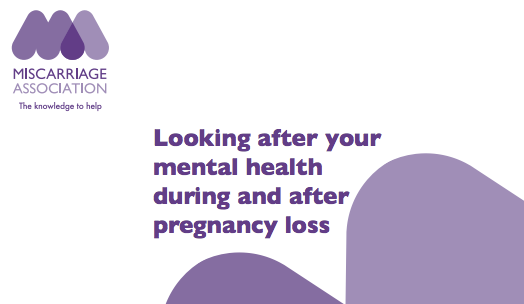I have just finished researching and developing a series of resources around pregnancy loss and mental health for the Miscarriage Association.
Research
I did extensive desk research and conducted a survey of the Miscarriage Associations supporters and stakeholders. In one week we received 1716 responses from people who self-identified as having had mental health problems as a result of their loss or losses.
Report and recommendations
I wrote a detailed report and provided recommendations.
Review of existing guidelines and quality standards showed that mental health support around pregnancy loss is limited and not always followed. Research highlights the association between early pregnancy loss and PTSD symptoms, OCD, depression and anxiety symptoms in particular – although studies are small, difficult to synchronise and limited in scope.
96% of all respondents to the survey reported that they had experienced difficult feelings, emotions or reactions that were caused by or related to their loss or losses in some way. 74% felt alone or isolated, 69% experienced persistent low mood, tearful or unable to find pleasure in things you used to enjoy and 61% felt numb or shut off from other people. 39% of all respondents had existing mental health problems that were made worse by their loss or losses. As well as the statistics we had almost 10,000 individual pieces of qualitative data to read and collate.
There is a complex range of experiences of pregnancy loss, mental health problems and how they interact. Emotional and physical isolation and low self-esteem/negative self-talk are common experiences after pregnancy loss. Both of these experiences can affect mental health. Mental health is rarely discussed during healthcare appointments relating to a loss or losses – leaving people who are struggling to feel as if they ‘should’ be coping better. The symptoms of mental health problems made it harder to seek support and people often didn’t even look for additional help until they were at crisis point.
We also felt it was important to include information or links to information about PTSD, anxiety and depression alongside information on individual symptoms and experiences.
The link between certain antidepressants (SSRIs) and miscarriage isn’t yet clear. Some sources do say there is a link but I couldn’t find any strong evidence for this. We tried to provide relevant information to help women talk to health professionals and decide what is best for them and their families (something that isn’t always easy).
I also wrote a summary of the report focusing on pregnancy loss, mental health and the NHS.
Writing, filming and editing
I wrote content for two new online support pages and a leaflet (see links below). I also updated a number of existing pages on the Miscarriage Association website to include relevant information on supporting someone else, other peoples reactions and online support.
I organised and managed a filmed interview with a counsellor specialising in pregnancy loss. I also did a rough edit of the footage to help clarify what we would like in the final edit.
I also worked with a number of women who kindly offered to share their experience on our website. People consistently tell us that reading other people’s experiences is very helpful for them – so we always want to include as many as we can in a new resource.
The resources are online now. We have aleaflet, some new website content, personal experiences and a filmed interview with a counsellor.
Reading this through is a pleasure – it’s such a good and helpful piece of work: warm, informative, clear and completely free of bias or values. Thank you.
Ruth Bender-Atik – National Director of the Miscarriage Association


1 thought on “Pregnancy loss and mental health – new resources online now”